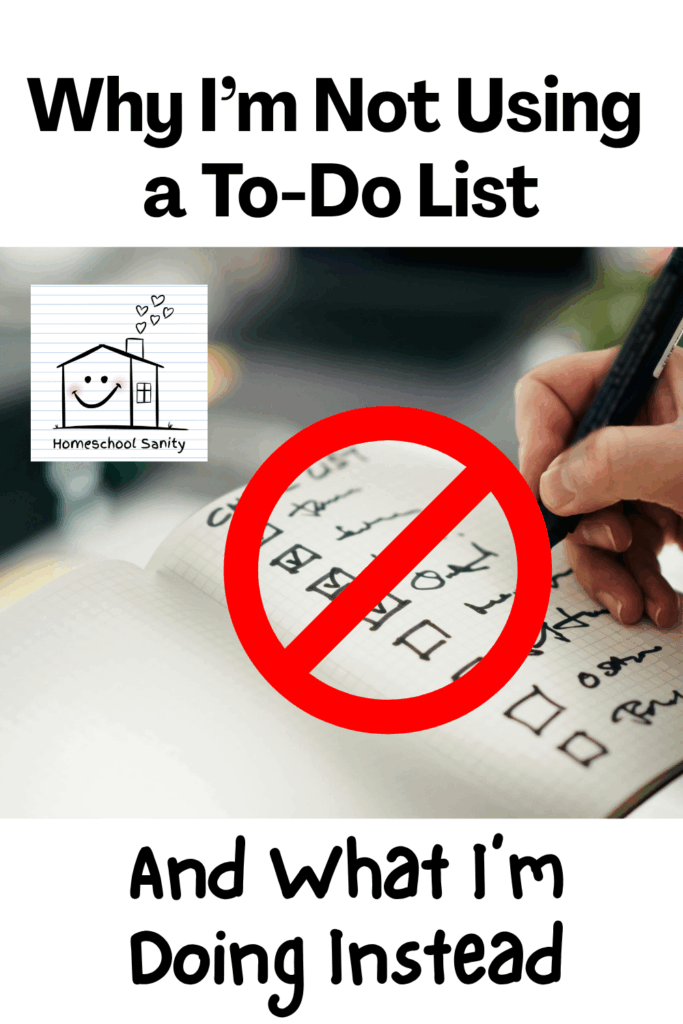I found myself in a productivity funk. As I've done so many times in this state of mind, I visited Mark Forster's forum and read about people implementing Paul Loomans's book Time Surfing (aka I've Got Time).
I decided to reread the book. I started implementing his principles and then recalled forum members describing the similarity between Time Surfing and Mark's book How to Make Your Dreams Come True. I loved that book and decided to reread it too.
I returned to keeping a What's Better list as Mark suggests, but the biggest change that resulted from revisiting the books is I stopped using a to-do list.
In my own book A Year of Living Productively, I discuss my experience of going no list. At the time, I didn't fully understand the philosophy behind it. Now I know that:
- To-do lists create overwhelm. They are like a Cheesecake Factory menu with too many options.
- To-do lists create inertia. Once you've listed an item, your brain records it as action and stops pushing you to get it done.
- To-do lists encourage forgetting. A huge list of tasks that combines urgent, important tasks with things you might want to do encourages us to ignore the list altogether. Scheduling them all on days we could complete them, even using reminders, will not help. Subconsciously, we know that we don't have to do them.
My husband is a productive, self-directed guy. But the most tasks I've seen on his notepad to manage is four. Most of the time, he has no list. He just gets up and does what he feels is important. His brain is his task manager.
Because it is, he is relaxed as he goes through his day. Interruptions are not annoyances. Breaks are enjoyed without guilt.
My work is more complex than his, without a doubt. But I told him that I wanted to start approaching work the way he does. I would stop using a to-do list. The results?
- I am more relaxed. I don't feel pressured to get things done by a certain time. I give myself permission to do what feels like the next best thing.
- I'm working on things that aren't necessarily the top priority. I didn't realize how hard I was trying to do the “most important thing,” whatever that is! If I wasn't or if I was interrupted, I felt guilty and stressed. Instead, I've been doing things that are less important just because I enjoy them. They still need to be done and they're getting completed faster. This article is a great example. I enjoy writing it and I'm getting it done quickly.
- I'm procrastinating less. I am not using reminders for regular tasks, so if I think of something that needs to be done, I just do it. Because I'm also allowing myself to do whatever I want to do, I have very little resistance to work.
I could go on, but instead I'd like to explain how I make this work, in case you'd like to try it yourself.
- I am using email as a list for detailed tasks. For example, I get emails from publicists about podcast guests. I need all their information to publish the show notes. I simply snooze the email to a day I think I'll work on the podcast. If I don't end up working on it that day, I snooze it again.
- I am using my calendar for time-dependent tasks. For example, I have a birthday party to attend this week. I add the party to my calendar and a task note to get a gift several days before. I have used this approach multiple times now, but what is interesting is that I don't need the task reminder. It's just a backup to make me feel comfortable.
- I am using checklists for lots of related tasks. I went out of town last weekend and had many things I needed to take care of before I left. I made a checklist so I wouldn't forget anything. Once again, I started using the checklist but quickly abandoned it because I knew what needed to be done. For more complex lists (like packing for a conference), I'll refer to a checklist until it's complete.
- I am using Mark Forster's vision / present comparison to motivate me. I regularly read a description I've written of how I want to be working and living and then write what's actually going on. Mark argues that this comparison between the ideal and the real prompts our subconscious mind to get us working to live in alignment with the ideal. That is my experience.
As I prepared to write this newsletter, I checked Mark's website and learned that he passed away this week. I will greatly miss his perspective on productivity and I'm praying for his family. I know Mark would want us to continue experimenting with task management so we can have more peace and joy.
“Many are the plans in a person's heart, but it is the Lord's purpose that prevails.” Proverbs 19:21
Be sure to subscribe so you don't miss out on homeschool sanity!
